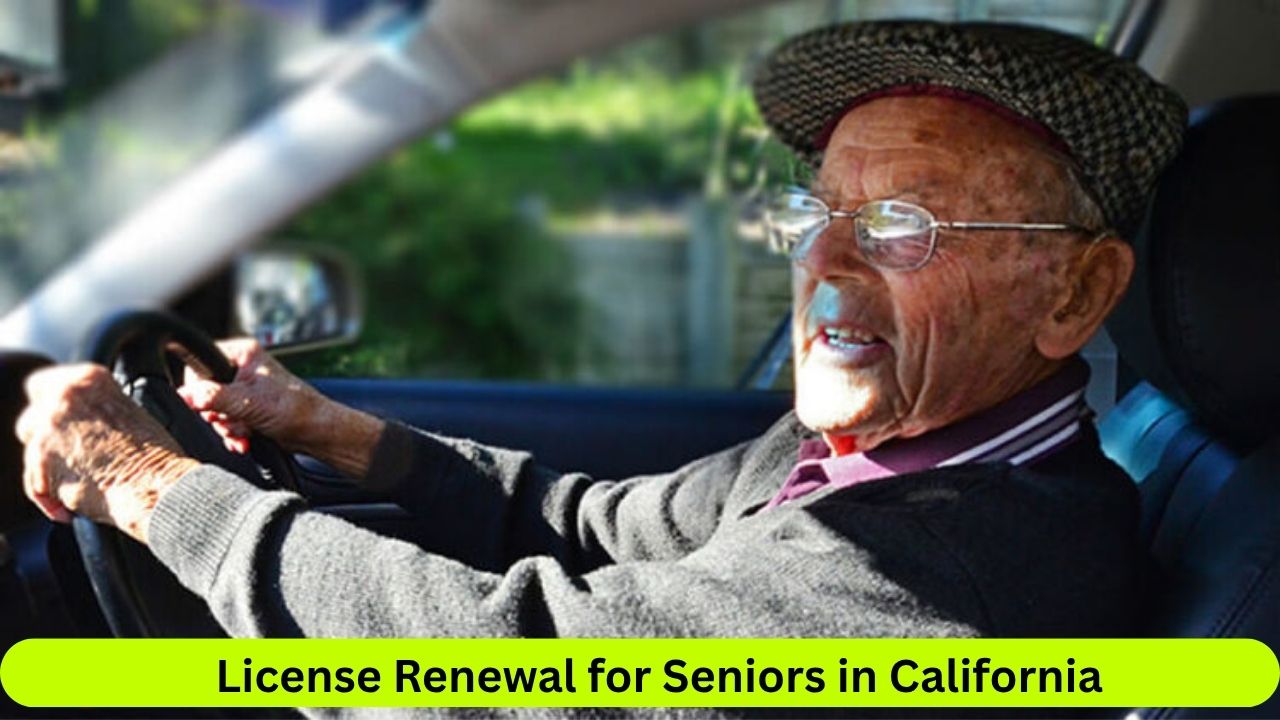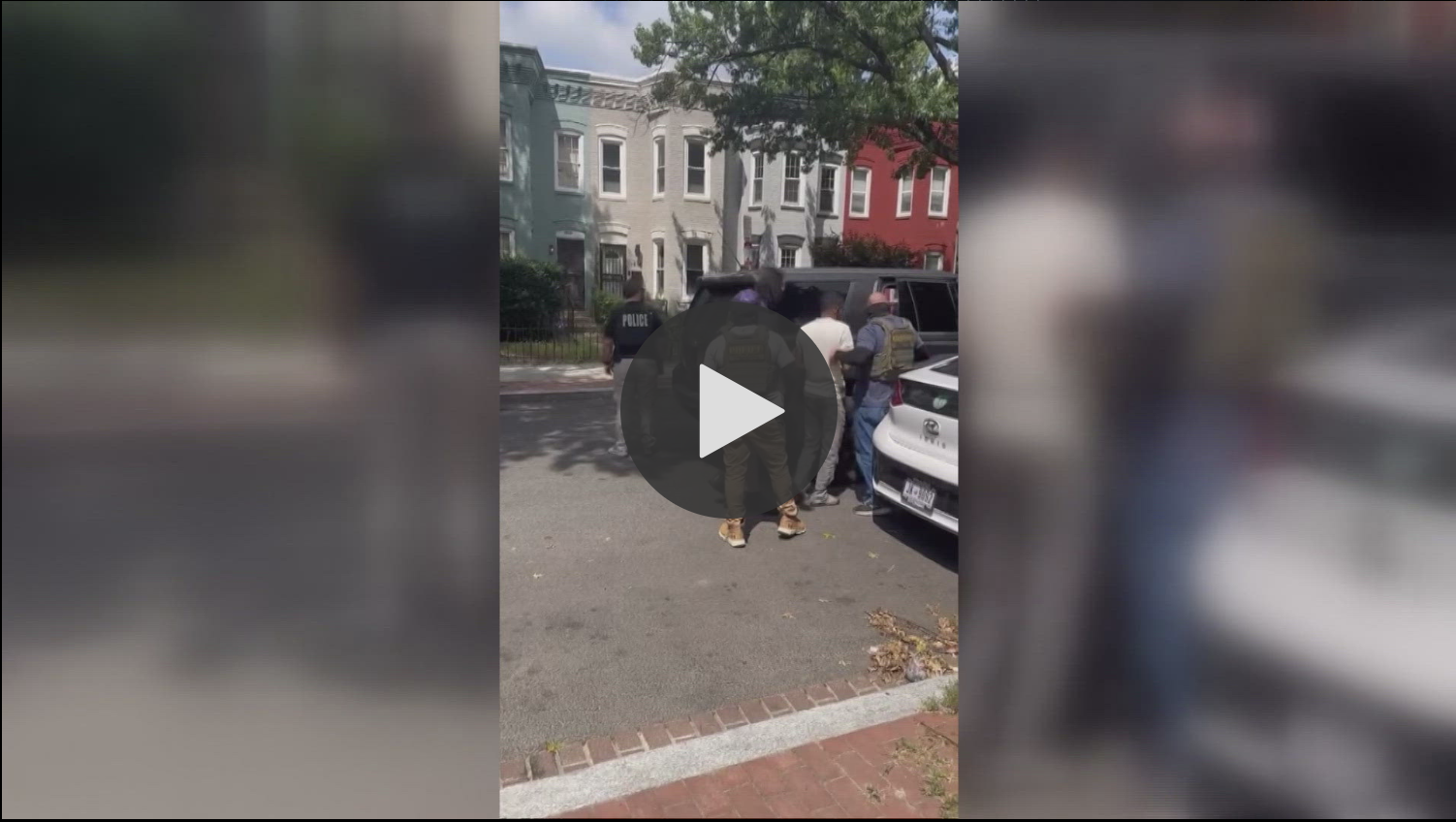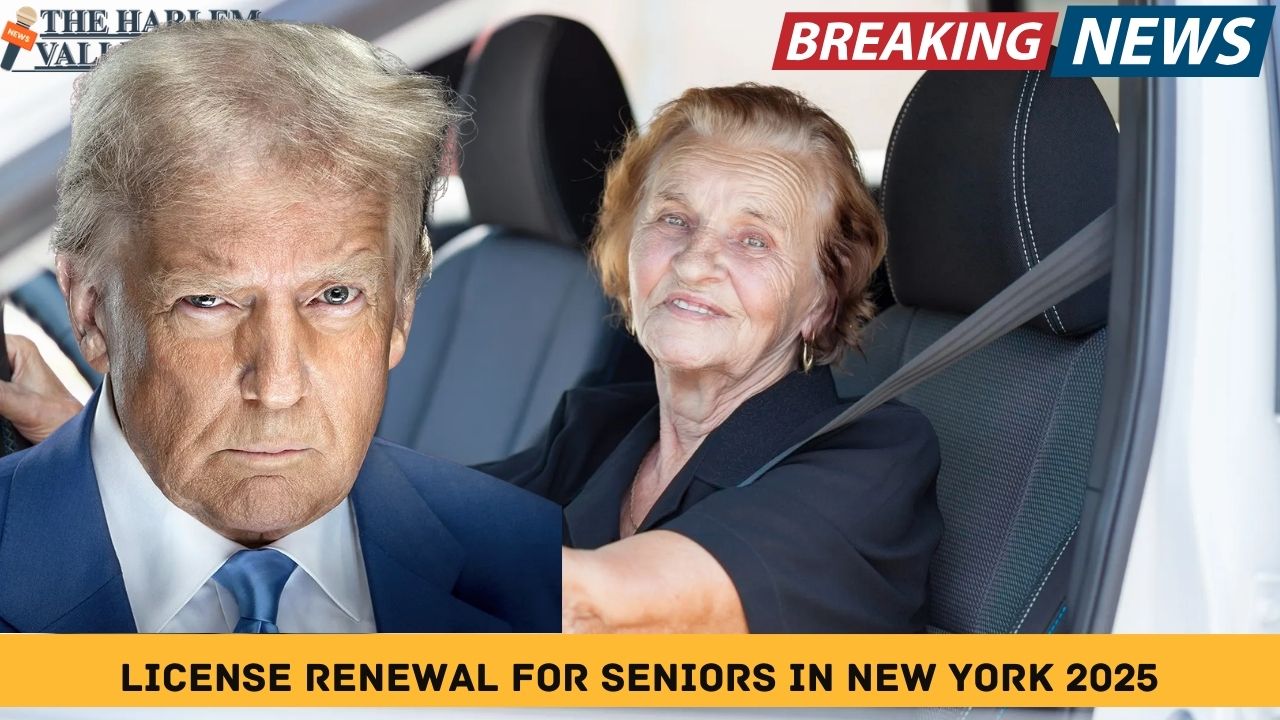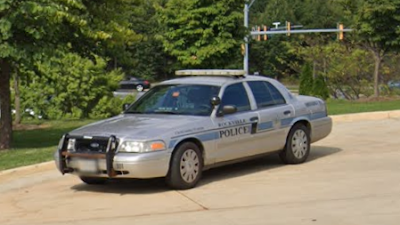In California, seniors are an important part of the driving population. For many, a driver’s license is more than just a card—it’s freedom, independence, and access to life’s necessities. But with aging comes changes in physical health, reaction time, and sometimes vision, which makes the license renewal process for seniors a vital safety measure.
In 2025, California has made several updates to streamline the license renewal process for drivers aged 70 and over. These changes aim to balance convenience with safety, making it easier for senior citizens to maintain their licenses while ensuring they’re still fit to drive.
Do Seniors Need to Renew In-Person?
Yes, if you are 70 or older in California, you are required to renew your license in person at a DMV office. This policy is intended to provide an opportunity for physical assessments such as a vision test and, if necessary, further evaluations.
Unlike younger drivers, seniors cannot renew their licenses online or by mail. However, you only need to do this once every five years unless there’s a concern about your driving ability, medical condition, or driving record.
What’s New in 2025: No More Written Test?
In a significant update, California no longer requires seniors aged 70 and older to take a written knowledge test during the renewal process—if they have a clean driving record.
This change is a welcome relief for many seniors who found the written test stressful or unnecessary. However, if you’ve had recent traffic violations, accidents, or if you’re flagged for medical concerns, the DMV may still require a written or online test.
This new policy reduces wait times at the DMV and removes a barrier for aging drivers while still holding those with questionable driving records to stricter standards.
Step-by-Step License Renewal Process
Here’s what the renewal process looks like for seniors in California in 2025:
Check Your Renewal Notice
-
Sent by mail 60 to 90 days before your license expires.
-
Tells you whether any additional testing is needed.
Complete Pre-Application Online
-
Visit the DMV website and start your application.
-
You can upload documents in advance to save time at your appointment.
Gather Necessary Documents
-
Your current driver’s license
-
Two proofs of California residency
-
Social Security number
-
Any medical forms if required
-
Payment for the renewal fee (usually $35)
Schedule and Attend DMV Appointment
-
Arrive early, as lines can get long.
-
DMV will conduct a vision test.
-
A new photo and fingerprint scan will be taken.
-
You’ll be issued a temporary paper license valid for 60 days.
Wait for Your New License
-
Your new license will arrive by mail within 3–4 weeks.
-
You can check delivery status online.
Vision and Health Requirements
Vision Standards
Seniors must meet a minimum vision standard of 20/40 in both eyes, or 20/40 in one eye and 20/70 in the other. If you don’t meet the minimum requirement at the DMV, you’ll be given a vision examination form to take to your eye doctor.
Depending on the results, you may be required to wear corrective lenses while driving or face restrictions on your license, such as no nighttime driving.
Health Evaluations
If you have certain medical conditions, such as dementia, epilepsy, or a recent stroke, your doctor may be required to report this to the DMV. This could trigger further assessments, including:
-
Medical Evaluation Form
-
Cognitive assessment
-
Driving test
In some cases, the DMV may suspend or revoke a license until the condition is evaluated.
Special Programs for Senior Drivers
California offers several helpful tools and programs to assist senior drivers:
Mature Driver Improvement Program
Approved courses that review safe driving techniques and offer insurance discounts for completion.
DMV eLearning
An online program for seniors who are required to take the written test. It includes videos, review questions, and does not result in a pass/fail grade. It’s available in multiple languages.
Restricted Licenses
If a senior can’t meet all the physical or cognitive requirements but can still drive safely under specific conditions, the DMV may issue a restricted license. Restrictions may include:
-
Daytime driving only
-
Local area driving
-
No freeway driving
Crash Statistics and Safety Data
Senior drivers in California are generally safe, but certain trends increase with age. These include:
-
Slower reaction times
-
Decreased vision
-
Increased injury severity in crashes
While drivers between 65–74 have lower crash rates than younger groups, those aged 75+ have higher fatality rates per mile driven.
Each year, California sees hundreds of fatal accidents involving senior drivers. This reinforces the importance of thorough evaluations during the renewal process.
City Spotlights: How Different Areas Handle Senior Renewals
Los Angeles
With the largest population of senior drivers, LA offers the most DMV locations, mature driver courses, and community outreach events.
San Diego
San Diego has developed partnerships with senior centers to offer vision screenings and mobile DMV services.
San Francisco
Public transit alternatives are abundant here, and the city has implemented programs that help seniors transition away from driving safely if needed.
Fresno & Bakersfield
Rural seniors in these areas often rely heavily on driving due to limited public transportation. Local DMVs in these cities tend to have longer wait times, so scheduling in advance is key.
Sacramento
As the state capital, Sacramento leads the way in DMV pilot programs and often tests new technology to assist with senior licensing.
Tips to Prepare for a Smooth Renewal
-
Update Your Address
Make sure the DMV has your current address at least three weeks before your renewal date. -
Have Your Documents Ready
Double-check that you have your proofs of residency and Social Security number. -
Get a Vision Check Beforehand
A visit to your optometrist can identify any issues early. -
Avoid Traffic Violations
A clean record helps you skip the written test. -
Consider a Practice Course
Even if you don’t need to take the test, reviewing California’s traffic laws helps. -
Bring a Loved One
DMV visits can be stressful. Having someone with you for support can help.
Other Options for Aging Drivers
If you’re not comfortable driving anymore or your health makes it unsafe, there are alternatives:
Senior ID Card
You can surrender your license and receive a free senior identification card if you’re 62 or older. This still gives you access to banks, air travel, and medical services without a driver’s license.
Dial-a-Ride and Senior Transit
Most California cities offer low-cost or free ride services for seniors. These services help you get to medical appointments, grocery stores, and more.
Ride-Share Services
Apps like Uber and Lyft often provide senior discounts and can be used without a smartphone via phone call in some areas.
Looking Ahead: Future Trends in Senior Licensing
The DMV and legislature are exploring new ways to assess senior drivers in the future. Here are a few possibilities:
-
Telehealth Vision and Cognitive Screenings
More health evaluations may be done remotely through doctor portals. -
In-Vehicle Monitoring Technology
Cars that monitor driver behavior may assist with license decisions. -
More Digital DMV Services
Despite in-person renewal requirements, more pre-application and vision documentation could move online. -
Stricter Health Reporting Rules
More conditions may be added to the mandatory reporting list, such as diabetes or sleep apnea.
Conclusion
In 2025, California has struck a new balance—making life easier for seniors while preserving road safety. The removal of the written test for most senior drivers is a major win, but the in-person requirement and health checks remain essential.
By understanding the process, preparing in advance, and staying informed about your rights and responsibilities, you can make license renewal smooth and stress-free. Whether you plan to continue driving into your 80s or are thinking about turning in the keys, the state offers multiple paths for independence and mobility.
Quick FAQ Summary
| Question | Answer |
|---|---|
| Do I need to renew in person? | Yes, if you are 70 or older. |
| Do I have to take the written test? | No, unless you have recent traffic violations or health concerns. |
| Is a vision test required? | Yes, at every in-person renewal. |
| Can I take a mature driver course? | Yes, and you may get an insurance discount. |
| What if I no longer want to drive? | You can get a free senior ID card. |
| Are there ride alternatives? | Yes, including city transit, ride-share, and Dial-a-Ride services. |
| How often do I renew? | Every 5 years. |
















Leave a Reply